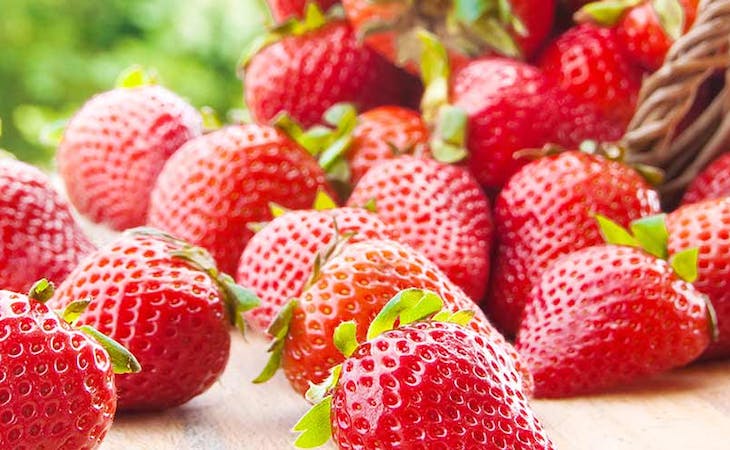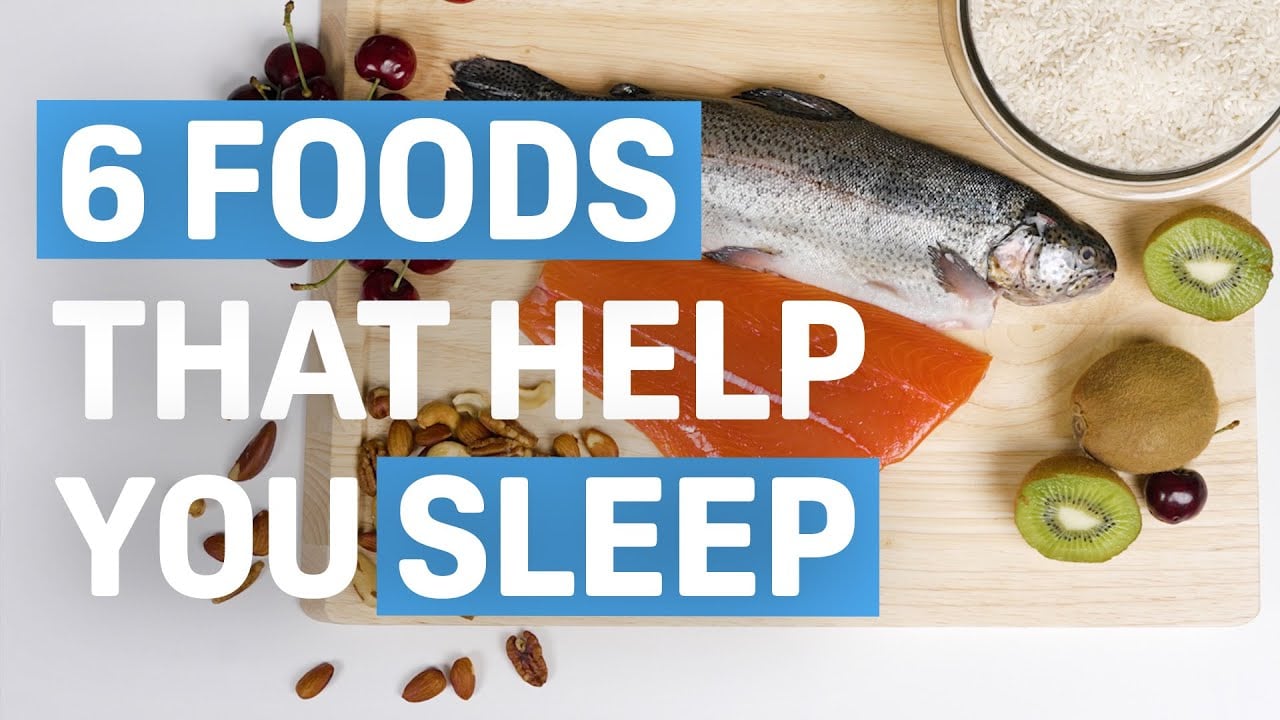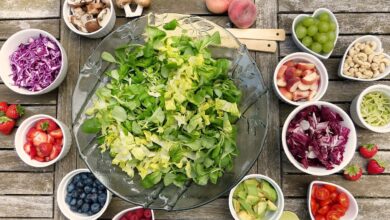Why Does Eating Healthy Help You Sleep Better: Discover the Benefits

Eating healthy helps you sleep better by regulating blood sugar levels and promoting the production of sleep-inducing hormones. Nutrient-rich foods support overall brain function and relaxation.
Quality sleep and a balanced diet are closely connected. Consuming nutrient-dense foods can improve sleep patterns and overall health. Foods rich in vitamins, minerals, and antioxidants aid in regulating the body’s internal clock. Proteins and complex carbohydrates play a role in the production of serotonin and melatonin.
These hormones are essential for initiating and maintaining sleep. Avoiding high-sugar and high-fat foods prevents energy spikes and crashes, leading to more restful sleep. Incorporating fruits, vegetables, lean proteins, and whole grains into your diet can make a significant difference. Prioritize healthy eating to enhance your sleep quality and overall well-being.
Connection Between Diet And Sleep
Many people struggle with sleep issues. The connection between diet and sleep is often overlooked. Eating healthy foods can significantly improve sleep quality. This link is supported by scientific research and nutrition experts.
Nutrient Impact
Certain nutrients play a vital role in sleep regulation. Magnesium, for instance, helps activate neurotransmitters that calm the mind. Foods rich in magnesium include spinach, nuts, and seeds.
Vitamin B6 is another important nutrient. It helps produce melatonin, the sleep hormone. You can find Vitamin B6 in bananas, chickpeas, and fish. Consuming these foods can help you fall asleep faster and enjoy deeper sleep.
Hormonal Balance
Healthy eating also helps in maintaining hormonal balance. A balanced diet regulates insulin levels. Unstable insulin levels can lead to disrupted sleep patterns.
Foods high in sugar cause spikes and crashes in blood sugar. This can interfere with sleep. Opt for complex carbohydrates like whole grains instead. These help maintain stable blood sugar levels throughout the night.
Another hormone influenced by diet is cortisol, the stress hormone. High cortisol levels can make it hard to sleep. Foods rich in antioxidants, like berries, can help reduce cortisol levels.
| Food | Key Nutrient | Sleep Benefit |
|---|---|---|
| Spinach | Magnesium | Calms the mind |
| Bananas | Vitamin B6 | Produces melatonin |
| Whole grains | Complex carbs | Stabilizes blood sugar |
| Berries | Antioxidants | Reduces cortisol |
Incorporating these foods into your diet can lead to better sleep. A healthy diet benefits not just your body, but your sleep too.
Role Of Vitamins And Minerals
Eating healthy affects sleep quality. Vitamins and minerals play a crucial role. They support various body functions, including sleep. Vitamins and minerals can help regulate sleep cycles. They also reduce stress and anxiety, promoting better rest.
Magnesium And Sleep
Magnesium is vital for sleep. It helps regulate melatonin, the sleep hormone. Foods rich in magnesium include:
- Dark leafy greens
- Nuts and seeds
- Fish
- Whole grains
Low magnesium levels can cause insomnia. Increasing magnesium intake can improve sleep. It also helps relax muscles and reduce stress.
Vitamin D Influence
Vitamin D also affects sleep. It helps regulate the sleep-wake cycle. Sunlight is a primary source of Vitamin D. Foods rich in Vitamin D include:
| Food | Vitamin D Content |
|---|---|
| Fatty Fish | High |
| Egg Yolks | Moderate |
| Fortified Milk | Moderate |
Low Vitamin D levels can disrupt sleep. Ensure adequate Vitamin D for better rest. It also boosts the immune system and mood.
Healthy Foods For Better Sleep
Eating healthy can significantly improve your sleep quality. Certain foods contain nutrients that promote relaxation and sleep. These foods help regulate your sleep-wake cycle, making it easier to fall asleep and stay asleep. Here are some healthy foods for better sleep that you should consider incorporating into your diet.
Sleep-inducing Fruits
Fruits are not only delicious but also packed with nutrients that aid sleep.
- Cherries: Cherries are a natural source of melatonin, a hormone that regulates sleep.
- Bananas: Bananas contain magnesium and potassium, which help relax muscles and nerves.
- Kiwi: Kiwi is rich in serotonin, which can help you fall asleep faster.
Whole Grains And Sleep
Whole grains are essential for a good night’s sleep. They provide sustained energy and help maintain stable blood sugar levels.
| Whole Grain | Sleep Benefits |
|---|---|
| Oats | Oats contain melatonin and complex carbs, which help induce sleep. |
| Quinoa | Quinoa is high in magnesium, a mineral that promotes sleep. |
| Brown Rice | Brown rice has a low glycemic index, which helps maintain stable blood sugar levels. |
Incorporating these sleep-inducing fruits and whole grains into your diet can make a significant difference in your sleep quality. Try adding them to your daily meals for better sleep and overall health.

Credit: www.sleepfoundation.org
Impact Of Sugar And Caffeine
Eating healthy can significantly improve your sleep quality. Sugar and caffeine are two major factors that affect how well you sleep. Understanding their roles can help you make better dietary choices. Below, we delve into how sugar and caffeine impact your sleep.
Caffeine’s Effect
Caffeine is a stimulant that affects your central nervous system. It can keep you awake and alert. Consuming caffeine late in the day can disrupt your sleep cycle. This happens because caffeine blocks adenosine, a chemical that promotes sleep.
Here’s a table showing the typical caffeine content in popular beverages:
| Beverage | Caffeine Content (mg) |
|---|---|
| Black Coffee | 95 |
| Tea | 47 |
| Energy Drink | 80 |
| Soda | 40 |
Sugar’s Role
High sugar intake can lead to poor sleep quality. Sugar causes spikes and crashes in your blood sugar levels. These fluctuations can interrupt your sleep patterns.
Here are some tips to reduce sugar intake:
- Opt for whole fruits instead of sugary snacks
- Choose water over sugary drinks
- Read labels to avoid hidden sugars
Importance Of Balanced Diet
A balanced diet plays a crucial role in maintaining overall health. It affects everything from energy levels to mental clarity. One key benefit of a balanced diet is better sleep. When you eat the right foods, your body functions more efficiently. This leads to more restful and restorative sleep.
Understanding how a balanced diet impacts sleep involves looking at various factors. These include macronutrient balance and meal timing. Let’s dive into these aspects for a clearer picture.
Macronutrient Balance
Macronutrients are proteins, fats, and carbohydrates. Each plays a unique role in your body. Proteins are essential for tissue repair and muscle growth. Fats help absorb vitamins and provide long-term energy. Carbohydrates are the body’s main energy source.
A balanced intake of these macronutrients is vital. Too much or too little of any can disrupt your sleep. For example, high-carb meals may spike your blood sugar. This can lead to restless sleep. On the other hand, a diet rich in healthy fats and proteins can stabilize your energy levels. This promotes deeper, uninterrupted sleep.
| Macronutrient | Function | Sources |
|---|---|---|
| Proteins | Tissue repair, muscle growth | Meat, beans, nuts |
| Fats | Vitamin absorption, long-term energy | Avocado, olive oil, fish |
| Carbohydrates | Main energy source | Fruits, vegetables, grains |
Meal Timing
The timing of your meals also influences sleep quality. Eating large meals right before bed can cause discomfort. This can make it hard to fall asleep. It’s best to have your last meal at least two hours before bedtime.
Consuming small, balanced snacks can be beneficial. They help maintain stable blood sugar levels. Try a small snack with both protein and carbs. Examples include an apple with peanut butter or cheese with whole-grain crackers.
- Eat your last meal at least two hours before bed.
- Choose small, balanced snacks if you need to eat late.
- Avoid heavy, spicy, or acidic foods before bedtime.

Credit: www.saatva.com
Gut Health And Sleep
Eating healthy impacts your gut health, which can improve your sleep. Your gut and brain talk to each other. This relationship affects how well you sleep. A healthy gut means better sleep.
Probiotics Benefits
Probiotics are good bacteria for your gut. They help keep your gut healthy. Probiotics benefits include better digestion, a stronger immune system, and better sleep. You can find probiotics in:
- Yogurt
- Kefir
- Kimchi
- Sauerkraut
These foods add good bacteria to your gut. This helps balance your gut flora. A balanced gut can help you sleep better.
Digestive Health Connection
Your digestive health is linked to your sleep quality. Poor digestion can cause sleep problems. Eating healthy helps your gut work well. This means fewer sleep disruptions. Foods high in fiber aid digestion. Fiber-rich foods include:
- Fruits
- Vegetables
- Whole grains
These foods move through your digestive system smoothly. This reduces the chances of gut-related sleep issues.
Here is a simple table showing foods that improve gut health and sleep:
| Food | Gut Health Benefit | Sleep Benefit |
|---|---|---|
| Yogurt | High in probiotics | Improves sleep quality |
| Bananas | High in fiber | Contains tryptophan for better sleep |
| Oats | Rich in fiber | Helps regulate sleep |
Hydration And Sleep Quality
Hydration and sleep quality are closely linked. Proper hydration helps regulate body functions, including sleep. Drinking enough water can improve your sleep quality significantly.
Water’s Role
Water is vital for every cell in your body. It helps transport nutrients and remove waste. Proper hydration supports brain function and mood. These factors are crucial for good sleep. Water also helps maintain body temperature. Staying hydrated can help you fall asleep faster and stay asleep longer.
Dehydration Effects
Dehydration can disrupt your sleep. It causes dry mouth and nasal passages. This can lead to snoring and a restless night. Dehydration also affects your mood and energy levels. You may feel more anxious and tired. These feelings can make it hard to fall asleep.
| Hydration Level | Sleep Quality |
|---|---|
| Well-hydrated | Better sleep, fewer disruptions |
| Dehydrated | Poor sleep, more disruptions |
Keeping a water bottle by your bed can help. Sip water throughout the day to stay hydrated. Avoid drinking too much right before bed to prevent bathroom trips.
- Drink water regularly throughout the day.
- Avoid caffeine and alcohol before bedtime.
- Eat water-rich foods like fruits and vegetables.
By focusing on hydration, you can improve your sleep quality. Good sleep can lead to better overall health and well-being.

Credit: www.sleepfoundation.org
Tips For A Sleep-friendly Diet
Eating healthy can significantly improve your sleep quality. A balanced diet helps regulate your body’s internal clock. It also supports the production of sleep hormones. Below are some tips for a sleep-friendly diet.
Evening Snack Ideas
Choosing the right evening snacks can make a big difference.
- Bananas: Rich in magnesium and potassium. These minerals help relax muscles.
- Almonds: Contain melatonin and magnesium. These can promote better sleep.
- Oatmeal: High in fiber and carbs. Helps boost serotonin levels.
- Chamomile Tea: Contains antioxidants. May improve sleep quality.
Foods To Avoid
Some foods can hinder your sleep. Avoid these to sleep better.
| Food | Reason |
|---|---|
| Spicy Foods | Can cause indigestion and heartburn. |
| High-Sugar Snacks | May lead to energy spikes and crashes. |
| Caffeine | Stimulates the nervous system. Can keep you awake. |
| Alcohol | Disrupts sleep patterns. Reduces sleep quality. |
Frequently Asked Questions
Why Do I Sleep Better When I Eat?
Eating can boost serotonin levels, which promotes relaxation. Nutrients like magnesium and tryptophan aid sleep. Avoid heavy or spicy meals.
Why Does Eating Healthy Make You Sleepy?
Eating healthy can make you sleepy because nutrient-rich foods stabilize blood sugar, boost serotonin, and aid digestion, promoting relaxation.
Does Eating More Make You Sleep Better?
Eating more doesn’t necessarily improve sleep. A balanced diet with proper nutrients promotes better sleep. Avoid heavy meals before bed.
Does Not Eating Enough Cause Insomnia?
Yes, not eating enough can cause insomnia. Poor nutrition affects sleep quality and disrupts sleep patterns. Ensure a balanced diet for better sleep.
Conclusion
Prioritizing healthy eating can significantly improve your sleep quality. Nutrient-rich foods promote better rest and overall well-being. Incorporate fruits, vegetables, and whole grains into your diet. You’ll notice a positive impact on your sleep patterns. Start making healthier choices today for a restful night and a more energetic tomorrow.


